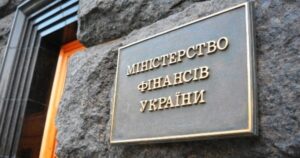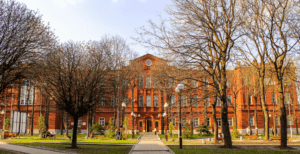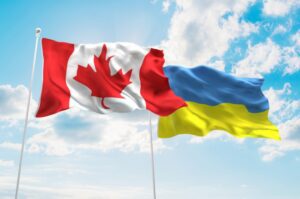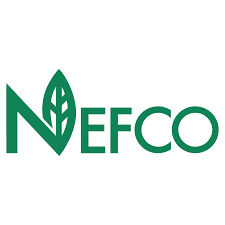
The expenses of the Ministry of Finance of Ukraine under the “payments on value recovery instruments (VRI)” item in December 2021 amounted to UAH 4.635 billion, the State Treasury said in a report on the execution of the state budget on Friday.
According to the National Bank’s average official hryvnia-to-U.S. dollar exchange rate for December, this corresponds to about $170 million, which was probably used to buy out VRI on the market.
The Ministry of Finance did not comment on these December changes in the item of state budget expenditures to Interfax-Ukraine.
In total, over the past year, expenses under this item totaled UAH 5.633 billion, with an updated plan for the year of UAH 6.755 billion, while the original plan was UAH 1.155 billion.
Within its framework, in May, Ukraine, according to the Ministry of Finance, made the first payment on VRI issued as part of the restructuring of Ukraine’s public debt in 2015, which amounted to $40.751 million.
The May report of the State Treasury indicated the amount of expenses UAH 1.123 billion, but a month later it was reduced by 11%, to UAH 997.72 million, probably taking into account the partial buyout of about 11% of VRI by the Ministry of Finance in August 2020.
VRI were issued as part of the restructuring of Ukraine’s public debt in 2015 instead of eurobonds for a nominal amount of about $3.239 billion (20% of the restructuring volume) and are not part of the country’s public debt. Payments under VRI are made annually in cash in U.S. dollars, depending on the growth dynamics of Ukraine’s real GDP in 2019-2038, but after two calendar years, that is, between 2021 and 2040.
If GDP growth for the year is below 3% or real GDP is less than $125.4 billion, then there will be no payments on securities. If the growth of real GDP is from 3% to 4%, the payment on securities will be 15% the value of the GDP growth between 3-4%, and if it is higher than 4%, then 40% of the value of the GDP growth above 4% is paid. In addition, payments are capped at 1% of GDP from 2021 to 2025. The absence of any restrictions on payments after 2025 in the event of rapid GDP growth has been criticized by individual politicians and experts within the country.
Quotations of VRI in December fluctuated within 90.7% -95.3% of the nominal value – one of the lowest levels in the past year. At the same time, as a result of the escalation of the situation around Ukraine and the sale of Ukrainian assets caused by it, the value of VRI decreased in January 2022 and dropped to 66.7% of the nominal value this week. This is the lowest level since the beginning of the summer of 2019, not counting the short dip in value at the beginning of the COVID-19 pandemic. On Thursday, January 27, amid positive news, VRI rose by 9.4% to 73.5% of the nominal value.
Taking into account the quotes in December and the volume of expenditures made, it is possible to roughly estimate the volume of new purchases of VRI at about 5.7% of their total volume.
The growth of Ukraine’s GDP for 2021 is estimated by the National Bank of the country at 3%, which means no payments in 2023.

The Innovative Campus for the training of IT specialists, implemented with the support of the UFuture holding, has opened on the basis of the National Technical University Kharkiv Polytechnic Institute.
According to the press release, under the project, a two-story building of the former university canteen with an area of 2,700 square meters is being renovated. The campus is designed for 300 students.
The first floor of the building includes a training cluster and a conference hall, on the second floor there are club offices and co-working spaces. The work is scheduled to be completed in 2022.
“The new campus should help young people who want to develop and connect their future with Ukraine. The world is changing rapidly, we need more such projects. Regardless of external or internal circumstances, we will continue to create an innovative infrastructure,” the founder of UFuture, Vasyl Khmelnytsky, said.
The construction of the campus is financed, among other things, by investments from UFuture and Kharkiv-based IT company NIX Solutions in the amount of UAH 8 million. Khmelnytsky’s K.FUND also allocated UAH 10 million for the purchase of equipment.
According to the press service of UFuture, the new technology for training IT specialists used on the campus provides for the transition from a declarative to a project-based learning scheme, and received support from the Ministry of Education and Science of Ukraine.
UFuture is a holding company that brings together Khmelnytsky’s business and social projects. It has a diversified portfolio of assets in real estate, infrastructure, industry, renewable energy, pharmaceuticals and IT. The value of UFuture’s assets is estimated at $500 million. The total capitalization of the businesses in which it has invested is up to $1 billion.

First Deputy Prime Minister of Ukraine, Minister of Economy Yulia Svyrydenko and Minister of International Trade, Export Promotion, Small Business and Economic Development of Canada Mary Ng during an online meeting on January 27 announced the launch of negotiations to modernize the Canada-Ukraine Free Trade Agreement (CUFTA).
“Canada and Ukraine will seek to negotiate new obligations in areas, including services, investment, digital trade, labour, and the environment, while advancing an inclusive approach to trade that aims to facilitate new opportunities for small and medium-sized enterprises,” the Ministry of Economy said in a statement.

Vinnytsia city territorial community was the first in Ukraine to proclaim the Green Deal as the basis of urban development and joined the practices of the European Green Deal, which aims to turn Europe into the first climate-neutral continent by 2050.
According to the Vinnytsia city council’s press service, the relevant declaration was signed by Mayor of Vinnytsia Serhiy Morhunov during a city council’s session, attended by high-ranking officials of the government of Ukraine, the Ukrainian parliament and Ambassador of the European Union to Ukraine Matti Maasikas.
Such a step will allow the regional center to engage new mechanisms and innovative ideas to improve urban space, address environmental issues, raise additional investment, including for energy and industrial renewal of enterprises and city life support systems.
Morhunov said the accession of all Ukraine to the Green Deal is at the stage of forming the roadmap. However, Ukrainian cities are already moving in the right direction.
The Green Deal of Vinnytsia is a logical continuation of the long-term plans of the society, fixed both in the Vinnytsia Concept of Integrated Urban Development until 2030, and Strategy 3.0, a plan for the development of communities throughout the region. The priority is the “green” economy, smart specialization, affordable, safe and environmentally friendly environment,” the city mayor said.
He said that Vinnytsia is implementing advanced European experience not for the first time. Thus, in 2015, the city was the first in Eastern Europe to receive the European Energy distinguishing feature and in 2019 confirmed the high status of an energy-efficient regional center. Programs for the efficient consumption of energy resources, the launch of environmentally friendly urban transport, trams and electric buses, are being developed here now.
“We are striving to involve international experts and financial resources for the implementation of green projects that we have in our plans,” Morhunov said.
In turn, Maasikas said that on such a highly urbanized continent as Europe, cities, towns and citizens play a key role in responding to climate change.
Maasikas said he is pleased that the Ukrainian city and people are actively working on the green transformation of society. According to the diplomat, since the announcement in 2019 of the European Green Deal, it has set the direction for transformational change and this is the new growth strategy of the EU. It reflects the idea of transitioning the entire economy to a green economy. He also said that Ukraine shares these hopes.
Ukrainian banks’ cash exchange rates on 28/01/22

Source: Interfax-Ukraine

The Nordic Environment Finance Corporation (NEFCO) has become a new shareholder of Bank Lviv, which operates mainly in the western region of Ukraine, with a 13.94% stake in the charter capital.
“With this investment, Bank Lviv continues to be a 100% foreign-owned bank. The largest shareholders are the Swiss responsAbility (48.56%) and Margeir Petursson (Iceland, 37.47%).
“We are happy to welcome NEFCO to Bank Lviv as a shareholder. Besides the investment, NEFCO will help strengthen Bank Lviv’s focus on sustainable environmental and social finance. Our international shareholders believe in Ukraine and seek a positive impact through direct investments in the bank’s capital. I am certain that NEFCO’s experience and expertise in green financing will support Bank Lviv’s development as a modern and sustainable bank,” Ashot Abrahamyan, the chairperson of the Bank Lviv management board, said.
“Bank Lviv’s strategy, our previous cooperation and the engagement and ownership of other professional impact investors encouraged us to invest in the bank. NEFCO and Bank Lviv share the same goal of accelerating the green transition and we believe that our participation will help the bank achieve its goals of sustainable and responsible banking. Bank Lviv is close to its customers, provides good service and aims to promote sustainable businesses practices and make a positive impact on the economy. The bank’s sustainable growth potential motivates us, and we are looking forward to continuing our cooperation with the Bank Lviv team,” Thor Thorsteinsson, the Vice President for Nordic SMEs at NEFCO, said.
“Bank Lviv is one of the fastest growing banks in Western Ukraine, and the leading micro and SME lender in the region. During last three years, the bank’s loans increased by 45% and deposits by 30% annually. One of the top 30 banks in Ukraine, Bank Lviv operates through 19 branches in Western Ukraine and Kyiv,” the report says.
“NEFCO, the Nordic Green Bank, is an international financial institution that finances the initial scale-up of Nordic green solutions on global markets. Founded in 1990 by the five Nordic countries, NEFCO has already financed and implemented over 1,500 projects in energy efficiency, renewable energy, clean water and sanitation, waste management, and cleaner industrial processes, among others. We serve the interests of our owners, Denmark, Finland, Iceland, Norway and Sweden, and work with concrete actions to accelerate the green transition,” according to the document.